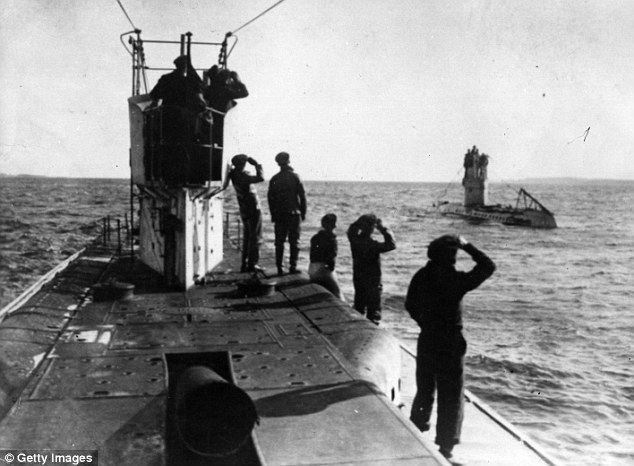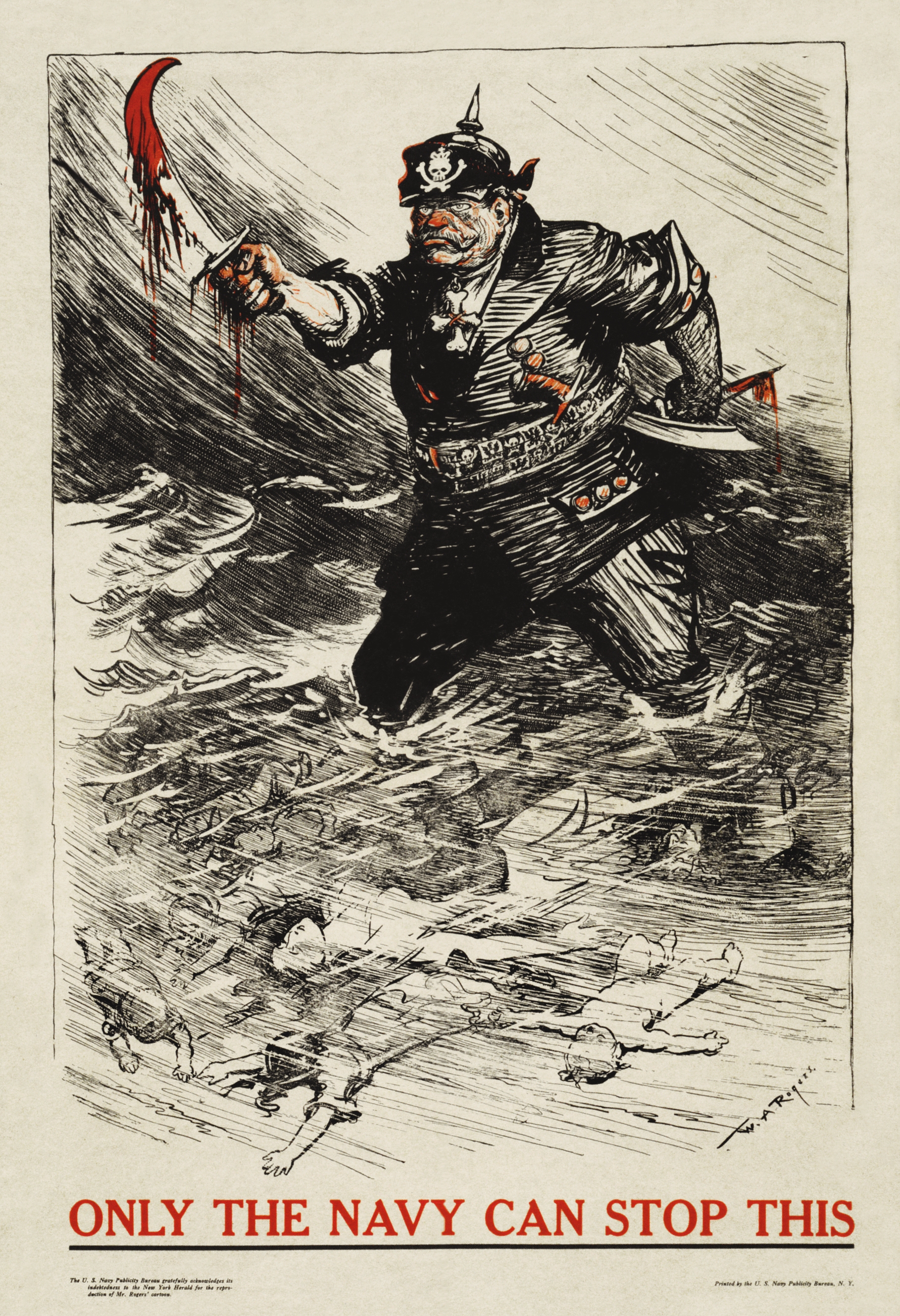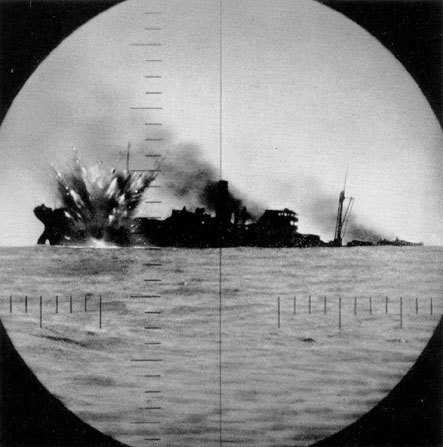American Ships, Supplies the Targets
U.S. Ponders Entering the War; Can’t Stay Neutral Forever
Special to The Great War Project
(3-7 October) The Germans continue their pressure on the United States, from the sea.
“German submarine sinkings were continuous,” reports historian Martin Gilbert. “Many observers wondered how long it would be before these sinkings forced the United States to declare war on Germany.”

German U-boats on the prowl, date and place uncertain.
Wilson continues to support a policy of neutrality, a stance he has taken and continues to support since the war began.
And he continues to campaign for re-election under the slogan, “He Kept US Out of the War.”
But now Wilson begins to question, both privately and publicly, whether the US can remain neutral.
At this moment a century ago, he tells the Cincinnati Chamber of Commerce, “I believe that the business of neutrality is over. The nature of modern war leaves no state untouched.”
And these German submarine attacks take place while the official German policy is to limit the war of the U-boats. Some months previous the Germans make a big show of their decision to stop the attacks on neutral unarmed shipping, especially carrying Americans and American goods.

Cartoon depicting German Kaiser as bloody aggressor.
The Americans have discovered a reason to be certain the submarine attacks will soon intensify. “The U.S. administration had clear early warning as to the thinking within the German High Command,” writes historian Gary Mead.”
It is a matter of good intelligence.
At about this time a century ago “Leo Allen Bergholz, the diligent American Consul-General at Dresden in Germany, passed on to Robert Lansing, the American Secretary of State, a vital piece of intelligence from an army officer connected with the Ministry of War at Dresden. Bergholz says he has known this officer for over two years.”
“In a three-hour conversation,” Mead writes, “this source told Bergholz that in the first months of 1917, Germany is contemplating removing the restrictions on U-boat attacks and returning to a policy of outright unrestricted use of submarine warfare.”
The German officer tells Bergholz that Germany has steadily been building submarines at the rate of two a week and hopes by a sudden attack with an overwhelming number of them to break through the barriers which protected the fleets of France and Italy with the aim of bringing about peace.”
Mead continues: “Bergholz’s spy was well-informed , and confirmed messages relayed by James Gerard,” Washington’s Ambassador in Berlin, “that outright U-boat warfare might resume if the United States could not influence the Allies to come to the negotiating table.”

Submarine warfare, in their sites.
The Germans have no illusions about what they can persuade the Americans to do.
The German High Command already views the United States as practically backing the Allies in the war, if not already one of them.
“The mood within the German Admiralty and the High Command,” Mead reports, “had already turned away from the hope that America might be able to bring pressure to bear on the Allies to negotiate a peace.”
“While Germany at this time had less than half the 222 submarines a pre-war study thought necessary to conduct an effective blockade around the British Isles, it was nevertheless managing to sink ships at an alarming rate.”
The sinkings multiply as the war drags on in the autumn of 1916.
